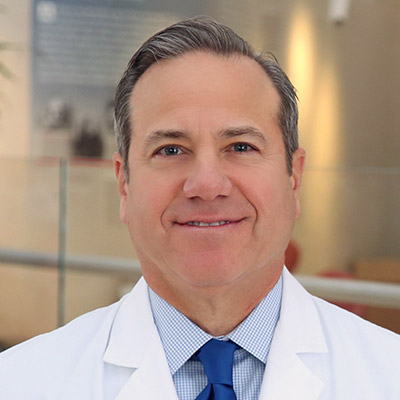Despite advancements over the past several decades to help minimize the post-operative complications of cardiac surgery, many patients still experience an inflammatory response to cardiopulmonary bypass, when doctors use a heart-lung machine to continue to pump blood while the heart is arrested. This response can lead to prolonged ventilation, bleeding, stroke, and renal dysfunction, often increased time in the intensive care unit (ICU) and prolonged length of stay.
NewYork-Presbyterian and Weill Cornell Medicine was one of 19 trial centers across the U.S., Australia and Canada to investigate whether a novel pharmacological preconditioning agent, RBT-1, can help jumpstart the production of anti-inflammatory cytokines to potentially reduce the occurrence of common post-surgical complications. Charles A. Mack, MD, Vice Chair of Quality in the Department of Cardiothoracic Surgery at NewYork-Presbyterian and Weill Cornell Medicine and site principal investigator at New York Presbyterian Queens, recently presented results from the phase 2 study of RBT-1 at the 2024 annual meeting of the American Association for Thoracic Surgeons. The findings are also pending publication in the Journal of Thoracic and Cardiovascular Surgery Open.
Below, Dr. Mack shares findings from the phase 2 study and discusses what researchers are looking to uncover in a larger phase 3 trial.
Testing RBT-1 in Phase 2
RBT-1 is a preconditioning agent that combines stannic protoporfin (SNPP) and iron sucrose (FeS) to elevate the anti-inflammatory response, as measured by heme oxygenase-1, interleukin-10, and ferritin levels. Patients received the medication 24-48 hours before coronary artery bypass graft (CABG) or heart valve surgery. “We know that it can take time for the body to respond to the medication and produce these protective anti-inflammatory mediators,” says Dr. Mack. “We found that the 24-48 hours after infusion is when they are at their peak, which means that by the time the surgery begins, they should be circulating at their highest levels to help protect the body from the inflammatory response of cardiopulmonary bypass.”
We found that the 24-48 hours after infusion is when they are at their peak, which means that by the time the surgery begins, they should be circulating at their highest levels to help protect the body from the inflammatory response of cardiopulmonary bypass.
— Dr. Charles Mack
In this phase 2 study, which focused on safety and dosage, 135 patients (8 of which were from NewYork-Presbyterian Queens) were randomized to receive either placebo, low-dose RBT-1, or high-dose RBT-1. “Overall, we found that both doses were safe and effective, but the higher dose produced one trivial toxicity, which was photosensitivity which resulted in sunburn,” says Dr. Mack. “Since the two doses were equivocal as far as their efficacy, there’s no reason to continue using the higher dose, so we’ll continue to study the low-dose drug in the Phase 3 study.”
Promising Results
While efficacy was not the primary focus of the Phase 2 trial, researchers did uncover positive results for patient outcomes that they hope to validate. All phase 2 patients started with the same baseline blood count, but patients who received RBT-1 had a 46% decrease in blood product transfusions. “Our theory is that RBT-1 not only serves as a source of iron, but it also contains important components that may be stabilizing the red cells, allowing less blood to be given during surgery,” says Dr. Mack. Other results included:
- Less time spent in the ICU
- Less time spent on a ventilator
- Lower likelihood of readmission to the hospital within 30 days
The combination of the decrease in post-operative complications and an increased anti-inflammatory response led the FDA to grant a breakthrough therapy designation to RBT-1 as a precondition agent so that it can fast track to phase 3. Subsequently, researchers have launched a multicenter, phase 3 study that will seek to validate the efficacy of RBT-1 compared with placebo in patients undergoing non-emergent CABG or heart valve surgery with cardiopulmonary bypass. The plan is to enroll 400 patients across 20 sites. So far, about 100 patients have been enrolled and results could come as soon as next year.
Looking for Efficacy in a Phase 3 Trial
Mortality rate, incidence of kidney injury requiring dialysis, number of days in the ICU, cardiopulmonary readmission, and incidence of atrial fibrillation are among some of the primary outcomes being measured. “Atrial fibrillation is one complication that’s a real nemesis to all heart surgeons,” says Dr. Mack. “It occurs in 30% to 40% of cardiac surgery patients, and it can prolong the length of stay in the hospital and often requires the use of blood thinners to prevent stroke. We have some preliminary evidence from the phase 2 study that RBT-1 led to a decrease in atrial fibrillation, but we need a larger number of patients to validate this observation.”
The less time a patient spends in the ICU, fewer complications, readmissions and shorter length of stay is going to have a tremendous impact on patient outcomes and satisfaction. Nobody wants to be on a ventilator longer, and receiving a blood transfusion has always been less desirable. This is a step toward providing overall better care for the patients.
— Dr. Charles Mack
Dr. Mack says the findings could have a significant impact on the quality-of-care patients experience post-cardiac surgery. “Despite the advances in cardiac surgery, we are constantly working to improve the care of our patients. The less time a patient spends in the ICU, fewer complications, readmissions and shorter length of stay is going to have a tremendous impact on patient outcomes and satisfaction,” he says. “Nobody wants to be on a ventilator longer, and receiving a blood transfusion has always been less desirable. This is a step toward providing overall better care for the patients.”



